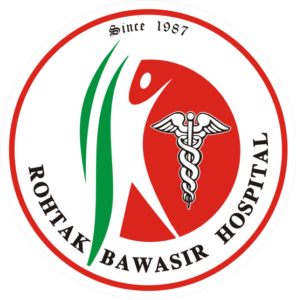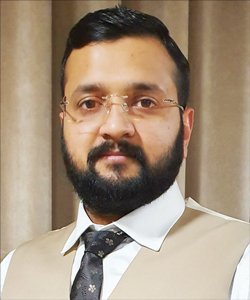Bawasir in Women: Understanding Gender-Specific Symptoms and Care


Updated on: 4th Jun 2024
Bawasir, commonly known as piles or hemorrhoids, is a medical condition characterized by swollen veins in the rectal or anal area. While it affects both genders, women often face unique challenges due to physiological and hormonal differences, particularly during pregnancy, menstruation, and menopause. This blog explores the specific causes, symptoms, and care for Bawasir in women.
Understanding Bawasir in Women

Hemorrhoids are classified into internal and external types, depending on their location. For women, hormonal changes and life events significantly impact the development and progression of the condition.
Hormonal Influence:
- Fluctuating hormones during menstruation, pregnancy, and menopause can weaken the rectal veins, increasing the risk of Bawasir.
- High levels of progesterone during pregnancy cause veins to relax, contributing to swelling.
Pregnancy-Related Causes:
- Increased blood volume and pressure from the growing uterus can exacerbate hemorrhoidal swelling.
- Constipation, a common pregnancy symptom, further strains the rectal veins.
Postpartum Challenges:
- Childbirth, especially vaginal delivery, increases pressure on the pelvic floor, potentially causing or worsening hemorrhoids.
Other Triggers:
- Chronic constipation or diarrhea.
- Prolonged sitting or standing due to occupational or lifestyle factors.
- Obesity and lack of physical activity
Gender-Specific Symptoms

While the general symptoms of Bawasir are similar, women may experience some differences due to their anatomy and physiological cycles:
Common Symptoms:
- Pain or discomfort during bowel movements.
- Itching or irritation around the anal area.
- Bleeding during defecation.
- Swelling or a lump near the anus.
Specific Concerns in Women:
- Aggravated symptoms during menstrual cycles due to hormonal shifts.
- Increased severity during the third trimester of pregnancy or postpartum recovery
Preventing Bawasir in Women
Prevention strategies tailored for women focus on mitigating the triggers unique to their physiology:
Dietary Adjustments:
- Increase fiber intake through fruits, vegetables, and whole grains to prevent constipation.
- Stay hydrated by drinking at least 2-3 liters of water daily.
Exercise:
- Engage in regular physical activity to improve bowel movements and reduce pressure on veins.
- Kegel exercises can strengthen the pelvic floor, reducing postpartum risks.
Healthy Bowel Habits:
- Avoid straining during bowel movements.
- Use a stool or footrest to maintain a natural squatting position, which eases rectal strain.
Lifestyle Modifications:
- Avoid prolonged sitting or standing.
- Use a cushion or ring-shaped seat for relief during extended sitting periods.
Treatment Options for Women

Treatment varies depending on the severity and stage of the condition. Women should consult a healthcare professional for personalized care:
Home Remedies:
- Warm sitz baths to soothe inflammation.
- Over-the-counter creams and ointments for pain relief.
Non-Surgical Interventions:
- Rubber band ligation or sclerotherapy for minor to moderate cases.
- Laser therapy, a minimally invasive option with quick recovery time.
Surgical Solutions:
- Hemorrhoidectomy for severe cases.
- Stapled hemorrhoidopexy, often preferred due to less postoperative pain.
Conclusion
Bawasir in women requires a nuanced understanding of its causes, symptoms, and care. By adopting preventive measures, maintaining a healthy lifestyle, and seeking appropriate medical advice, women can manage this condition effectively. Rohtak Bawasir Hospital offers comprehensive care, ensuring that gender-specific needs are addressed with compassion and expertise.
Meet Our Specialists

Dr. Raj Kumar Garg (B.A.M.S.)
40+ Years of Experience

Dr. Rahul Garg (B.A.M.S.)
15+ Years of Experience

